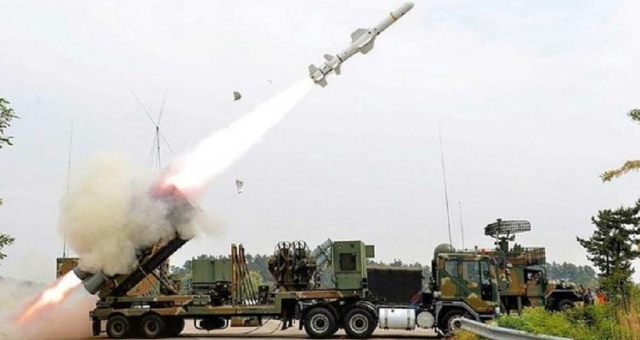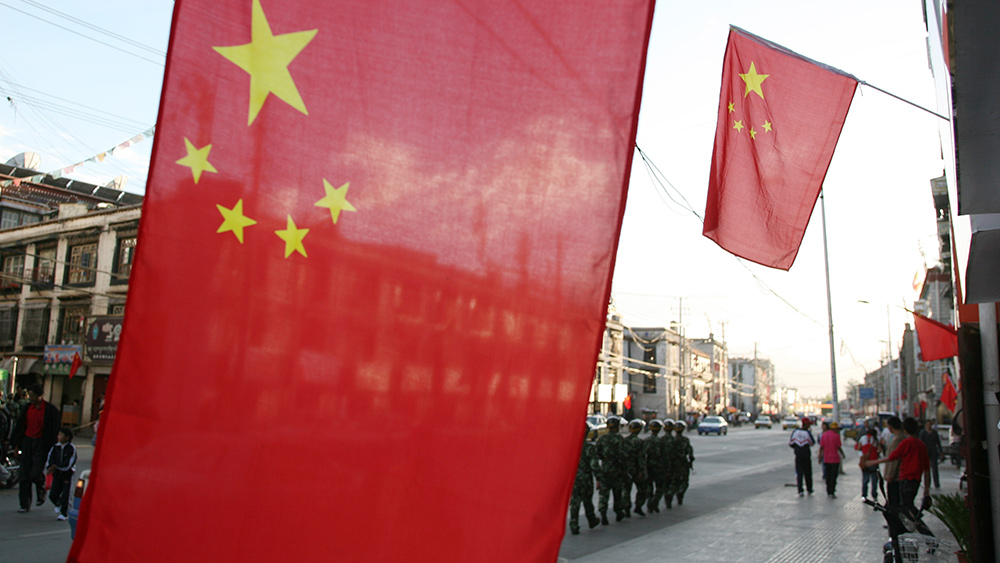Global military spending hits record-high $2.24 trillion amid ongoing conflict in Ukraine, heightened tension in Taiwan
04/26/2023 / By Arsenio Toledo

Global military spending in 2022 rose to a record-high $2.24 trillion, spurred on by massive increases in national military budgets in the wake of increased global tensions, particularly in Ukraine and Taiwan.
This is according to the Stockholm International Peace Research Institute (SIPRI), which released its annual report on global military expenditures on Monday, April 24. The report noted that last year’s military spending rose by 3.7 percent and marks the eighth consecutive year in which global defense spending rose. (Related: Pentagon demands $842B budget as America prepares for war against China.)
The United States, China and Russia hold on to their titles as the largest spenders in 2022, and their combined announced military budgets accounted for 56 percent of the world total.
America’s defense spending in 2022 reached $877 billion and accounted for more than a third – 39 percent – of total global military spending. This is also three times more than the amount spent by China, the world’s second-largest spender at $292 billion.
Furthermore, the U.S. also spends more on defense than the next 10 biggest defense spenders have allocated for their respective militaries combined – China, Russia, India, Saudi Arabia, the United Kingdom, Germany, France, South Korea, Japan and Ukraine, respectively.
U.S. defense spending in 2022 increased by 0.7 percent, and SIPRI noted that this percentage would have been even greater had it not been for America experiencing the highest levels of inflation since 1981.
It should be noted that nearly $20 billion or about 2.3 percent of what the U.S. military spent last year was to provide armaments to Ukraine, including small arms, ammunition, rocket launchers, air defense systems and tanks.
Furthermore, military spending by members of the North Atlantic Treaty Organization, led by the U.S., accounted for more than half of global spending at $1.232 trillion, which was 0.9 percent higher than in 2021.
Russia, China boost spending over Ukraine and Taiwan
China, which has the world’s second-largest military budget, spent an estimated $292 billion on defense in 2022, representing a 4.2 percent increase from 2021 and more than two-thirds higher than what China spent a decade ago.
China has made it a priority to continue increasing its military spending as its economy and global ambitions have grown. It has used some of this spending on establishing more military installations on islands in the disputed South China Sea region as part of efforts to expand its influence in the area. It has also spent more on increasing the effectiveness of its military as it gears up for its long-term goal of reunifying with democratically-governed Taiwan, which China considers a part of its territory.
Russia, meanwhile, grew its military spending by an estimated 9.2 percent in 2022 to around $86.4 billion, equivalent to around 4.1 percent of the country’s gross domestic product (GDP) in 2022, up from 3.7 percent of GDP in 2021.
Figures released by Russia late last year show that spending on “national defense,” the largest component of the country’s military expenditure, was already 34 percent higher in nominal terms than what Moscow had drawn up in its budgetary plans in 2021.
“The difference between Russia’s budgetary plans and its actual military spending in 2022 suggests the [special military operation] in Ukraine has cost Russia far more than it anticipated,” said Lucie Beraud-Sudreau of SIPRI’s Military Expenditure and Arms Production Program.
Rest of the world also rearming, ending brief period of shrinking military spending
SIPRI noted that there was a brief period when total military spending around the world was shrinking before Russia annexed the majority-Russian region of Crimea from Ukraine in 2014. This incident reversed that trend, and global military expenditures have been growing steadily ever since.
In East and South Asia, Japan and India increased their own military budgets due to the increasing threat posed by China.
Japan’s budget increased by 5.9 percent between 2021 and 2022 to $46 billion, or 1.1 percent of the country’s GDP. This was the highest level of Japanese military spending since 1960 and the increase coincides with the implementation of the country’s new, more ambitious national security strategy, which it crafted in response to the perceived growing threats not just from China but also from North Korea and Russia.
India also increased its military spending in 2022 to $81.4 billion, six percent more than the previous year, and retained its title as the fourth largest defense spender in the world.
Saudi Arabia overtook Germany, France and the U.K. to become the fifth-largest defense spender as it poured an estimated $75 billion into its military. This represents its first increase in military spending since 2018.
Most of Europe also poured more resources into their respective militaries. Finland, Lithuania, Sweden and Poland increased their defense spending by double-digit percentages each. Overall, the continent saw a 13 percent rise in military spending, the biggest year-over-year increase in over 30 years.
Watch this clip from “Jesse Watters Primetime” on Fox News as host Jesse Watters interviews Florida Sen. Marco Rubio about the “big problem” with the lack of transparency in American military spending.
This video is from the News Clips channel on Brighteon.com.
More related stories:
Zelensky and his cronies stole at least $400M from US taxpayers last year.
WWII main players Germany and Japan gearing up for global war.
China increases military budget to $224 BILLION in preparation for invasion of Taiwan.
Sources include:
Submit a correction >>
Tagged Under:
big government, bubble, budget, chaos, China, collapse, defense spending, government debt, military, military budget, money supply, national debt, national defense, national security, panic, preparedness, Russia, Taiwan, US, White House, World War III
This article may contain statements that reflect the opinion of the author
RECENT NEWS & ARTICLES
COPYRIGHT © 2020 CommunistChina.News
All content posted on this site is protected under Free Speech. CommunistChina.News is not responsible for content written by contributing authors. The information on this site is provided for educational and entertainment purposes only. It is not intended as a substitute for professional advice of any kind. CommunistChina.News assumes no responsibility for the use or misuse of this material. All trademarks, registered trademarks and service marks mentioned on this site are the property of their respective owners.




















